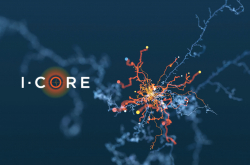LYON, France - An agreement signed today at the INTERPOL General Secretariat headquarters will see the Netherlands Police (Politie) contribute EUR 1.2 million to the INTERPOL Capabilities for Operational Relevance (I-CORE) programme.
The contribution will go to I-CORE’s Smart Case Messaging, a web-based platform that applies artificial intelligence to help make police information exchange more effective. With INTERPOL’s member countries exchanging more than 28 million free-text messages every year via its secure global communication system, I-24/7, Smart Case Messaging is a key component of the organization’s drive to ensure police data can be accessed faster, smarter, everywhere.
The funding agreement was signed by INTERPOL Secretary General Jürgen Stock and Jannine Van den Berg, Chief of the Central Unit of the Netherlands Police.

INTERPOL Secretary General Jürgen Stock said: “Information is the lifeblood of law enforcement. This contribution from the Netherlands will help improve the consistency of information exchanged via INTERPOL as well as the quality and quantity of hits and leads, and the speed of follow-up.
“It is also testimony of the Netherlands’ belief in the value of INTERPOL and our mission of making the world a safer place,” added the INTERPOL Chief.
Jannine Van den Berg, said: “I-CORE is a critical programme for INTERPOL to future-proof its information management and keep its services and products relevant to the investigative agencies across its membership. Not in the least for those that already have a relatively high standard in information architecture on a national or regional level.
“Considering the strong need for complementarity and interoperability of police organizations worldwide, it is most urgent that INTERPOL provides state-of-the-art tools such as Smart Case Messaging that make the exchange and exploitation of law enforcement information as efficient and user-friendly as possible.”
With INTERPOL’s regular budget unable to fund the EUR 80 million required for the programme, the Organization has asked its member countries for financial support.
“The Netherlands recognizes the reality that this programme requires an initial investment in addition to INTERPOL’s statutory budget. As a silver lining to the travel restrictions that have hindered our operational police cooperation over the last two years, we have been able to reallocate part of our international cooperation budget towards this technical development that will improve continuous, direct international information exchange between our capitals,” added Ms Van den Berg.






